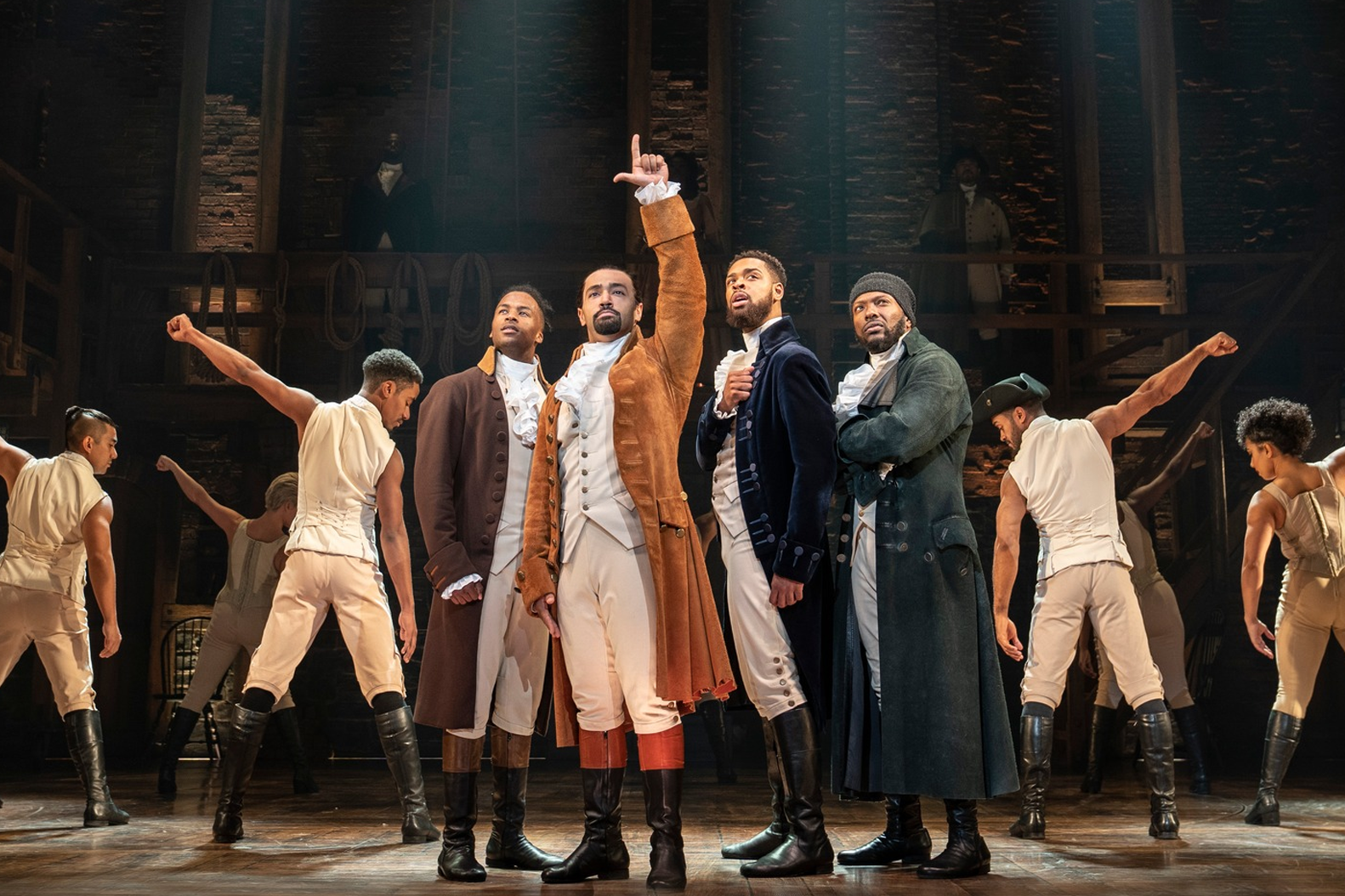For over a month now, the smash-hit Hamilton has been wowing Singaporean audiences. This catchy and gripping musical features America’s founding father, Alexander Hamilton, capturing his life from zenith to nadir in a hip-hop fuelled lyrical extravaganza.
Being one of those who’ve packed the seats at the Sands Theatre over the past few weekends, I deeply enjoyed the musical. I loved its catchy rhymes, campy humor and roller-coaster of a plot that had me variously laughing, tearing and cheering throughout the show.
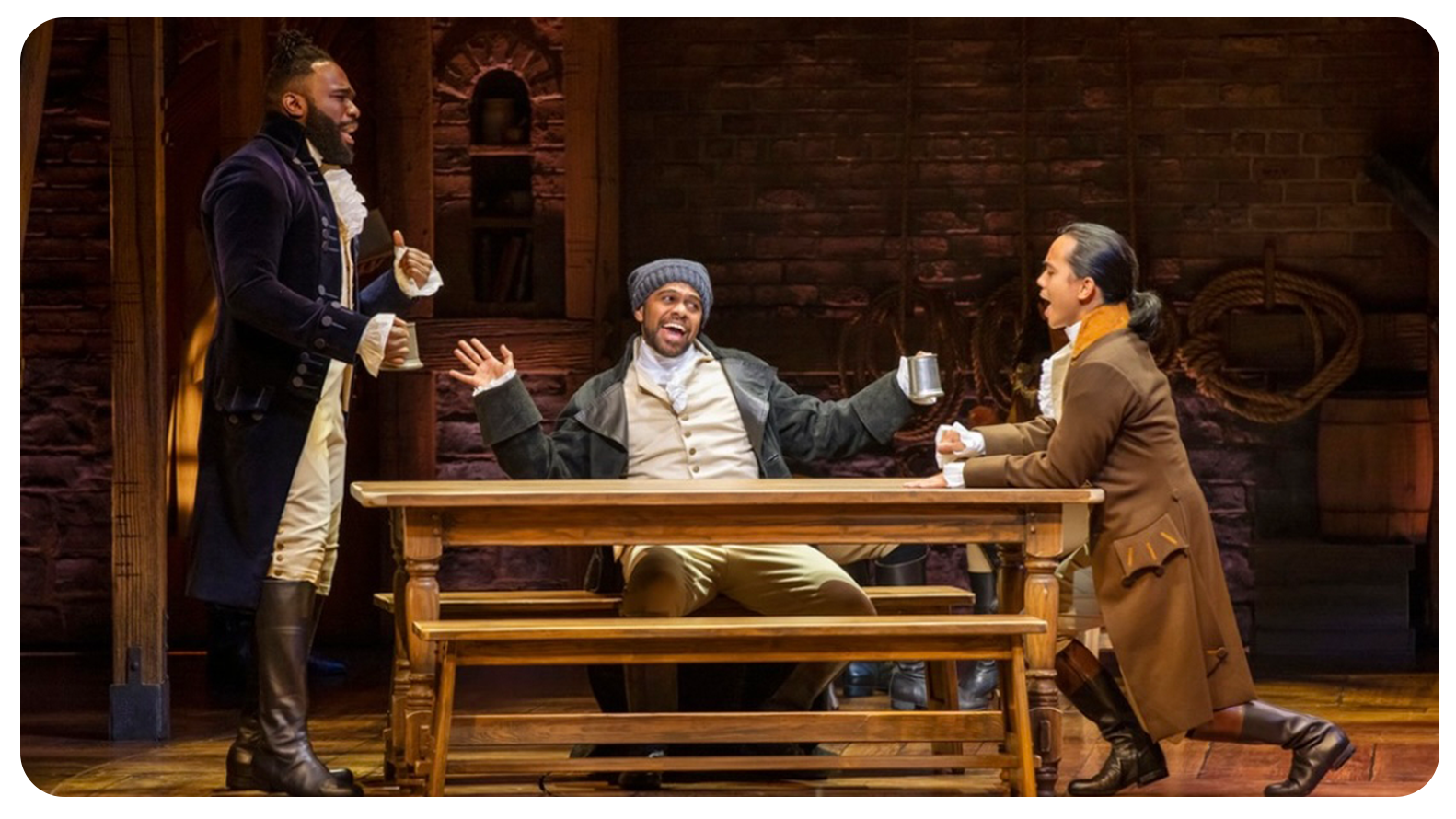
But just like all good fiction does, it also left me in contemplation of the Gospel and how the themes of the musical relate to it. Amid the clinquant razzle-dazzle of the show’s musical numbers, shades of the Gospel present themselves throughout its narrative, and this article is an attempt to express my thoughts about some of them.
Satisfied
“He will never be satisfied, I will never be satisfied.”
In a soul-stirring soliloquy set at a wedding, Angelica Schuyler bemoans the circumstances that make it impossible for herself and Hamilton to be together.
She laments over how she will never be satisfied because she has elected to put aside her love for Hamilton for the sake of Eliza and social appearances.
The prominent leitmotif that emanates from this song recurs throughout the show, symbolising the cloud of dissatisfaction that continues to hang over her as a result of her decision.

This pathos of dissatisfaction is not solely suffered by Angelica but exudes out of various characters throughout the musical.
Aaron Burr waits longingly to be in the “Room where it Happens”, a discontentment that boils over into rage when Hamilton keeps him out of it. The Democratic Republicans seethe over Hamilton’s favour with the puissant George Washington, and fantasise that it would it be nice to have Washington on their side.
However, the most prominent example of discontentment is the titular character himself, Alexander Hamilton. As the words he tells Angelica in their first meeting portend, Alexander Hamilton is never satisfied. Throughout the musical, he writes, and he fights like he’s running out of time.
He’s non-stop. It’s not enough, it’s never enough. Despite impassioned pleas from Eliza to be content with the life that they have, Hamilton’s appetite for power and his obsession with his legacy burns like an ungovernable wildfire, consuming himself and everything around him.
Hamilton’s insatiable craving for power calls to mind a verse from Proverbs: “Death and Destruction are never satisfied, and neither are human eyes”.
Just as Hamilton’s ambitious ascent leads only to wanting more, so too do our own endeavours often leave us grasping in the void.
This is especially the case in success-driven Singapore, where everyone seems to be chasing internships, scholarships – any ship that we believe will make us a new man.
But such absolution never comes. When we sacrifice at the altar of the god of success, we are cruelly disappointed.
This is not merely confined to success. Anything we worship besides God consumes us as we pursue them, disappoints us when we get them and devastates us when we lose them.

“For the household gods utter nonsense, and the diviners see lies; they tell false dreams and give empty consolation. Therefore the people wander like sheep; they are afflicted for lack of a shepherd.” (Zechariah 10:2, ESV)
But it is not only romance, power or success that we often pursue fruitlessly to satisfy ourselves. We retreat into social media, entertainment and games to escape, hoping to find in the virtual what eludes us in reality. We scroll our screens endlessly and aimlessly, seeking satisfaction that is at best distraction.
Anything we worship besides God consumes us as we pursue them, disappoints us when we get them and devastates us when we lose them.
Indeed, in an age where our senses are delighted and filled at a rate never before seen in history, the adage from Ecclesiastes rings even clearer in our hollow hearts: “All things are full of weariness; a man cannot utter it; the eye is not satisfied with seeing, nor the ear filled with hearing” (Ecclesiastes 1:8).
Why is it that in the ceaseless march of time, humanity finds itself constantly ensnared by a relentless pursuit of more, a craving that seems insatiable?
Blaise Pascal’s astute observation sheds some light on this issue: “What else does this craving, and this helplessness, proclaim but that there was once in man a true happiness, of which all that now remains is the empty print and trace?
“This he tries in vain to fill with everything around him, seeking in things that are not there the help he cannot find in those that are, though none can help, since this infinite abyss can be filled only with an infinite and immutable object; in other words by God himself.”
St. Augustine puts it far more succinctly: “You have made us for Yourself, O Lord, and our heart is restless until it rests in You.”
As created beings, we long for the restoration of our relationship with God, to glorify and to enjoy Him in all His fullness. The aching abyss within us can only be abated by reconciliation with God. This desire for God is the root of all our discontent.
The aching abyss within us can only be abated by reconciliation with God.
Even us Christians are not spared from dissatisfaction on this side of eternity. The incompleteness of our sinful bodies render it impossible for us to be constantly satisfied in God in this life. We “groan within ourselves, waiting eagerly for our adoption as sons and daughters, the redemption of our body” (Romans 8:23).
And in our groaning, we may find ourselves tumbling back into the same dissatisfying pitfalls that offer no balm to our broken lives.
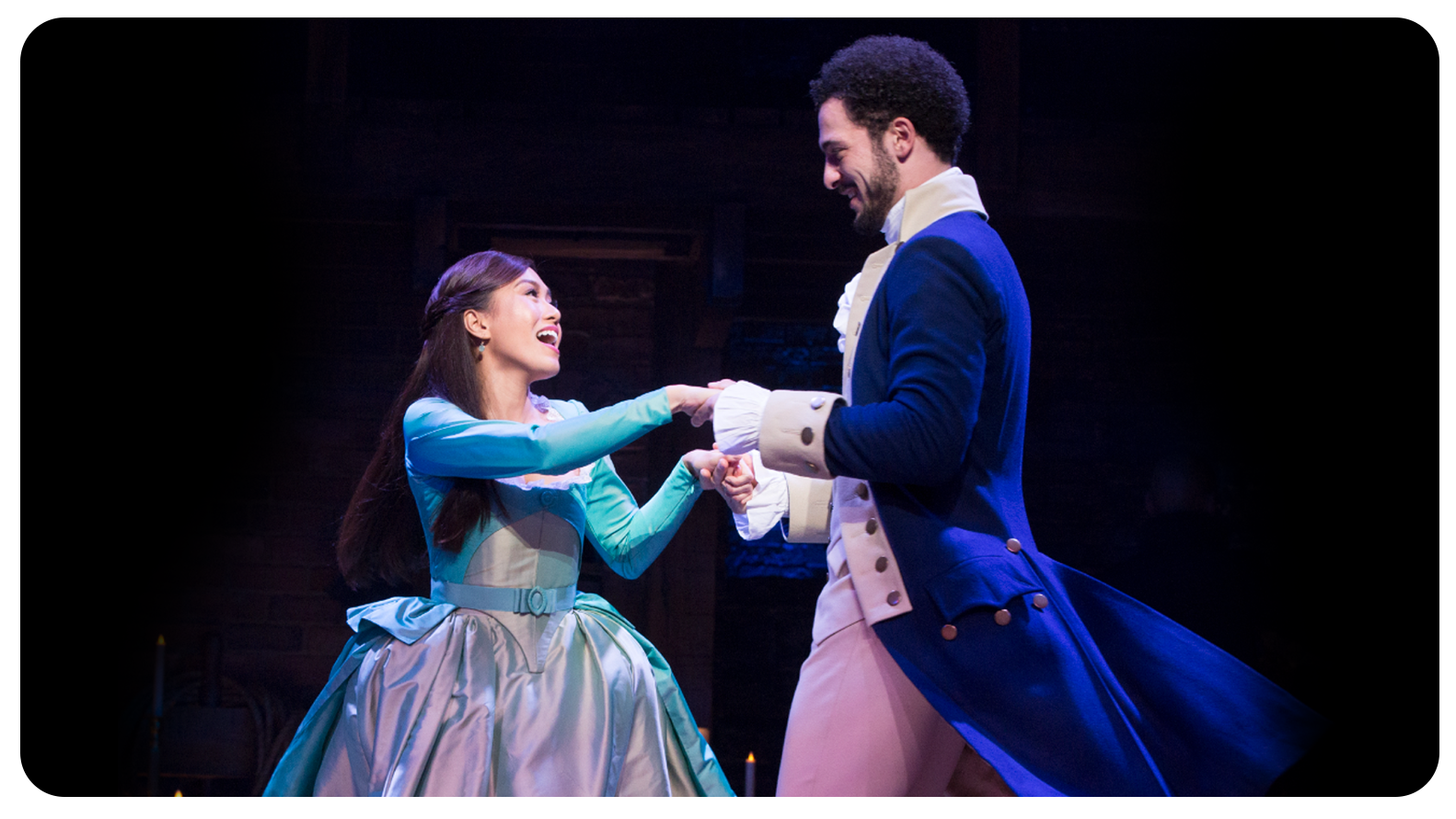
Instead of getting sucked back into the swirl of discontentment, may we look instead to Christ, to find in Him the satisfaction and contentment that this world cannot offer us.
He is the fountain of living waters, and if we drink from Him, we shall never thirst again (John 4). He is the good Shepherd, who calls to us, and has come that we may have life more abundant (John 10). As Hebrews 13:5 tells us, we can be content with what we have, for He has said, “I will never leave you nor forsake you.”
When we look around at how we are chosen, redeemed, adopted, forgiven and the countless blessings we enjoy in Christ, we can say with the Apostle Paul that we have learned in whatever situation we are to be content.
We know how to be brought low and how to abound. In any and every circumstance, we have learned the secret of facing plenty and hunger, abundance and need. For we can do all things through Him who strengthens us (Philippians 4:11-13).
The fact that we’ve been made alive together with Christ is a miracle, and for Him to be by our side – that is more than enough.
Who lives, who dies, who tells your story
“Let me tell you what I wish I’d known, when I was young and I dreamed of glory, you have no control, who lives, who dies, who tells your story.”
When Hamilton finally assumes command midway through the first act, Washington offers him some free advice: “You have no control, who lives, who dies, who tells your story.”
In so doing, Washington signifies a major theme in the musical – legacy. From the moment Hamilton first sings about not throwing away his shot, to the point when he sees death seven feet ahead of him, the concept of legacy is something that haunts Hamilton.
To a lesser extent, other characters of the show share a similar obsession with legacy. Washington broods over how history has its eyes on him, disturbed by past mistakes that cause him to lie awake at night. Aaron Burr bitterly complains over how history will forever paint him as the villain. Eliza worries over whether she has done enough to tell Hamilton’s story as the curtains of the show draw to an end.
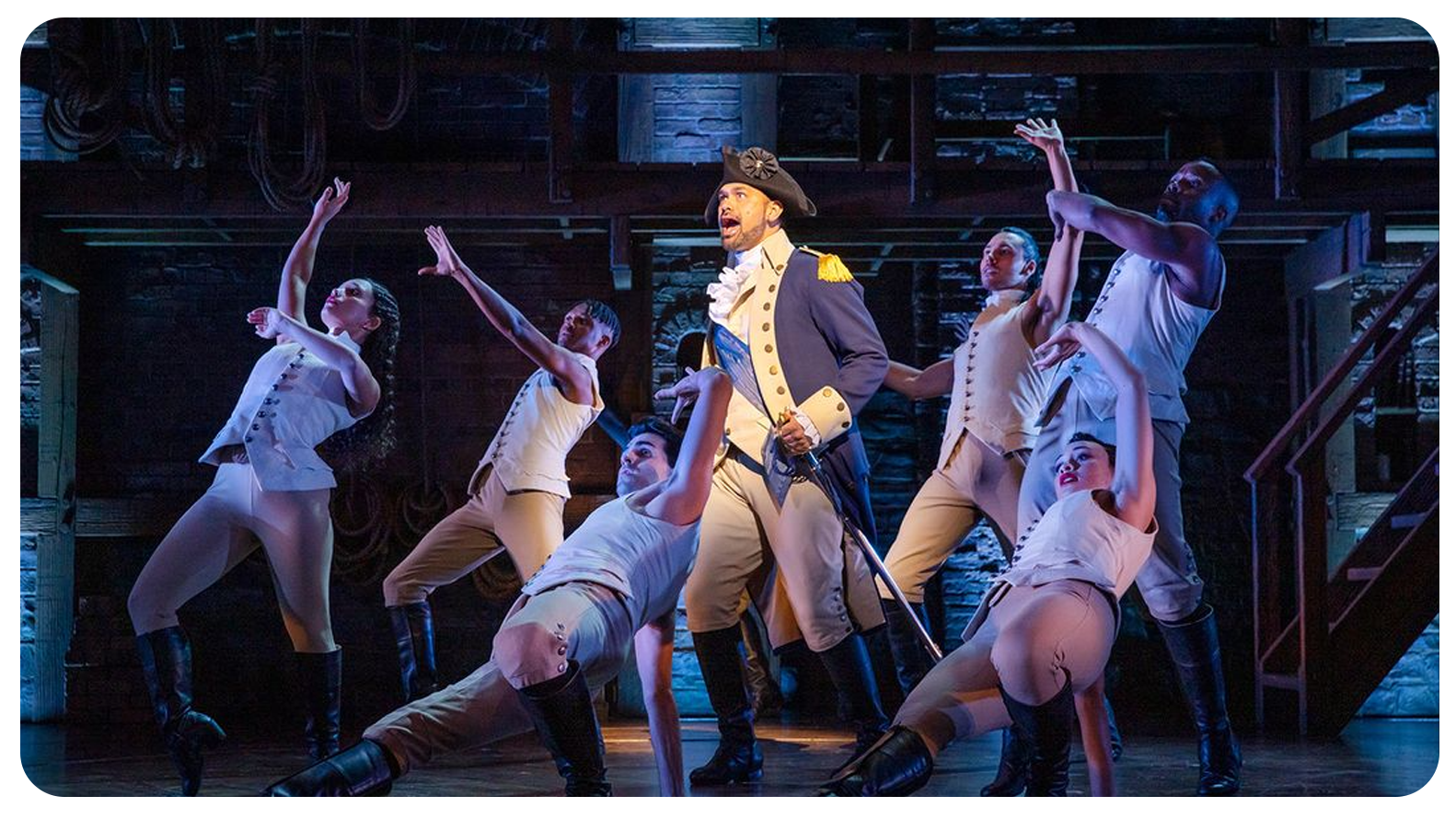
What these characters have in common is the shared sentiment of their helplessness in the face of the little control they exercise over their legacy. They agonise over their lack of control over how their actions will be viewed or their lack of control over life, for that matter.
Aaron Burr resolutely proclaims his restraint and reasons that he is “the one thing in life [he] can control”, but ultimately sorrows over how he will be cast forever as history’s villain because of a moment of folly.
Hamilton arrogantly declares that he will write his way out of the eye of the hurricane, only for his political empire to collapse around him in a catastrophic spectacle.
Even though both characters hold vastly different approaches to life, both are united in insecurity over their own helplessness. They speak to the folly of seeking to be the masters of our own fate and the artificers of our own legacy.
The Bible emphasises in even clearer terms the folly of grounding one’s life upon the legacy he leaves behind.
As it says in Ecclesiastes: “For of the wise as of the fool there is no enduring remembrance, seeing that in the days to come all will have been long forgotten. How the wise dies just like the fool!” (Ecclesiastes 2:16).
Not only is history a capricious spectator, it is also a forgetful one. Life would be a most arbitrary affair if we danced solely before the jaundiced eyes of history.
All of my yesterdays, my times and my tomorrows are in His hands. The sovereign God has His eyes on me, and He tells my story…
But things change when I take myself out of my self-concocted narrative and live assuredly under the gracious sovereignty of our God.
I can rest instead in the beautiful truth of Psalm 139:16: “Your eyes saw my unformed substance; in my book were written every one of them, the days that were formed for me, when as yet there was none of them”.
All of my yesterdays, my times and my tomorrows are in His hands. The sovereign God has His eyes on me, and He tells my story, being the “author and finisher of our faith” (Hebrews 12:2, NKJV).
Rather than building my legacy on the sinking sand of the world’s affirmation, I can make it my aim to please Him, for He is the one that writes and reads the story of our life that will be read out before His judgement seat (2 Corinthians 5:10.).
To hear “Well done, good and faithful servant!” (Matthew 25:21) and to sit beneath the shade of the vine and the fig tree (Micah 4:4) when I enter into the rest of my Lord, will be a far better fate than any I could have forged on my own.
Indeed, Paul teaches us how to say goodbye, when he writes “I have fought the good fight, I have finished the race, I have kept the faith. Henceforth there is laid up for me the crown of righteousness, which the Lord, the righteous judge, will award to me on that day, and not only to me but also to all who have loved his appearing” (2 Timothy 4:7-8).

Indeed, what is a legacy? It is planting seeds in a garden you don’t get to see, one grand unfinished symphony. But it is God who gives the increase to the seeds, and it is God who finishes all that He begins. He who begins a good work in us has promised He will bring it to completion at the day of Jesus Christ (Philippians 1:6).
We do not need to be anxious over our lack of control for we know the One who controls all things is watching out for us.
All things work together for good to those who love God, to those who are called according to His purpose. He who did not spare his own Son, but gave him up for us all — how will he not also, along with him, graciously give us all things?
Dear friends, whether you are in a season of waiting, or in a season fraught with uncertainty, trust that God is writing a story with our lives. And if you are still hinging everything on the narrative you are desperately scribbling out, let this be the first chapter when you decide to let Him into your life. He makes all things beautiful, and it’s only a matter of time.
For He lives, He died, and He tells your story.
It’s Quiet Uptown
I take the children to church on Sunday
A sign of the cross at the door
And I pray
That never used to happen before
When a figurative hurricane swirls around him, tearing all he holds dear to shreds, Hamilton sings the above lyrics, driven in desperation to the God he once eschewed. Indeed, just a few songs earlier, he sings in Hurricane: “And when my prayers to God were met with indifference, I picked up a pen, I wrote my own deliverance.”
In a profound irony, the letter that became the historical Hamilton’s ticket out of the West Indies was actually rife with awe and reverence for God, written in reflection after a literal hurricane had destroyed life as he knew it:
“Despise thyself, and adore thy God. How sweet, how unutterably sweet were now, the voice of an approving conscience; Then couldst thou say, hence ye idle alarms, why do I shrink? What have I to fear? A pleasing calm suspense! A short repose from calamity to end in eternal bliss? Let the Earth rend. Let the planets forsake their course. Let the Sun be extinguished and the Heavens burst asunder. Yet what have I to dread? My staff can never be broken—in Omnipotence I trusted.”
This shows that far from seeing his miraculous ingress into America as an object of his own machinations, the historical Hamilton knew he owed his life to the mercy of an omnipotent God, one in whom he first trusted.
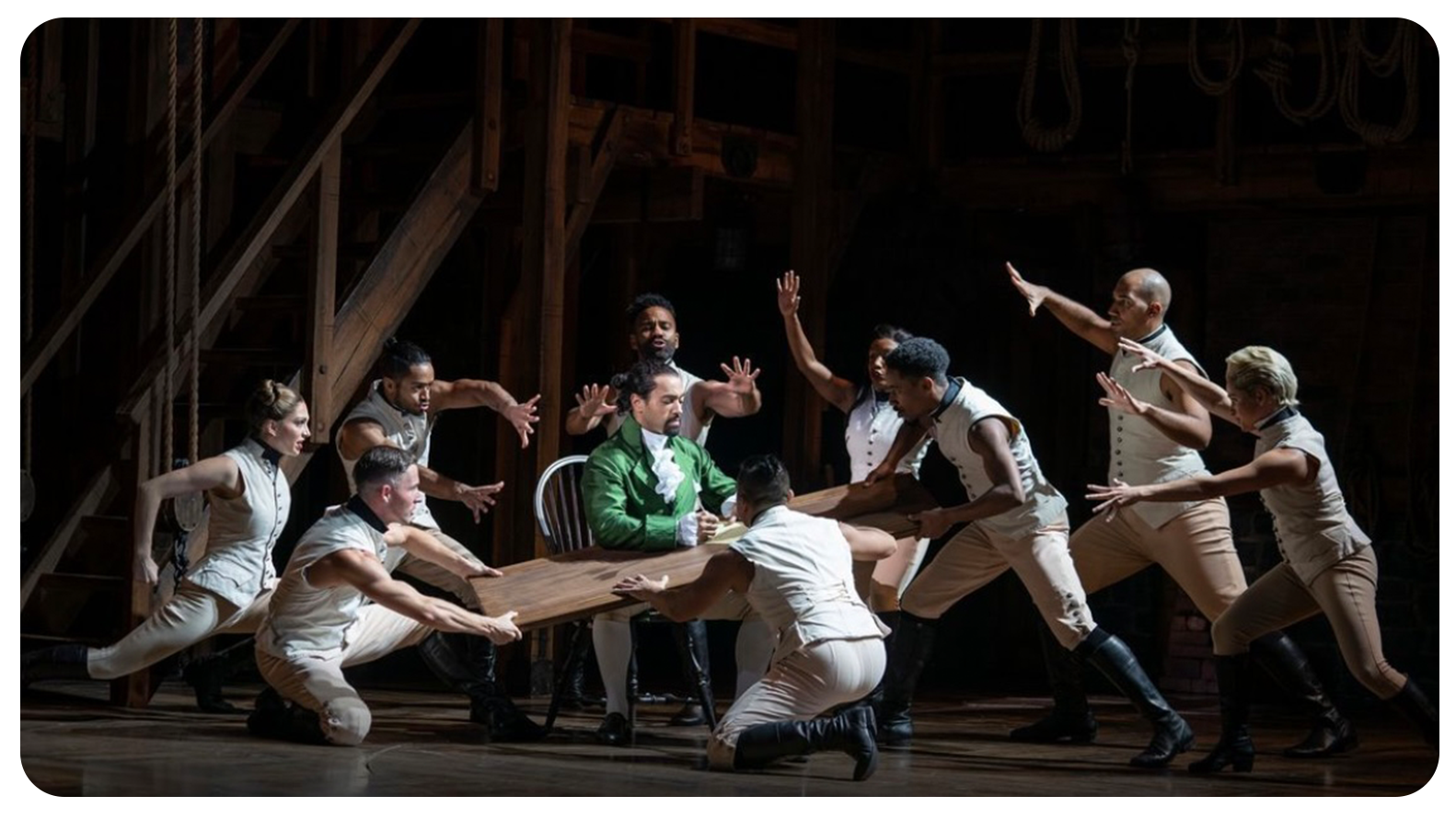
But as the show implies, the historical Hamilton’s journey out into the far country of America was characterised by a drifting away from God akin to the prodigal son.
Just as the prodigal son took what his father had graciously given to him and squandered it in reckless living, the historical Hamilton seemed to have taken His Heavenly Father for granted and squandered all he had been given in reckless pursuit of political power.
Historical accounts suggest Alexander Hamilton’s life was choked up by the cares of this world, from his seeming indifference to Christianity between 1777 and 1792, to his opportunist use of it to gain political power until 1801 (the year Philip Hamilton died).
While the show is relatively silent on his religious backsliding, Hamilton’s downward cascade is otherwise apparent. Witnessing his neglect of his family, his torrid affair and his political implosion, we can see that he truly falls from pinnacle to pigsty.
But just as the prodigal son is driven home to beg forgiveness from his father in hunger and desperation, Hamilton begs for forgiveness when he is reduced to nothing.
By the time It’s Quiet Uptown rolls around, Hamilton is well and truly sorry for his actions. He begs for forgiveness from Eliza, knowing full well that he deserves not a shred of it from her.
And the unimaginable thing is that she does forgive him. Eliza, whose heart Hamilton broke, whose heart Hamilton tore apart, whose life Hamilton burned to the ground, shockingly forgives him.
It is almost with disbelief that the choir sings of Eliza’s forgiveness: “Who could imagine?”
But Eliza’s incredible display of forbearance mirrors a far more stupendous act of forgiveness.
The father of the prodigal son, rather than spurning his errant son as he rightfully should, runs out to embrace him, kiss him, clothe him and celebrate his return.
This is how God the Father graciously welcomes us, His prodigal children. God demonstrated His own love toward us through Christ’s death for us while we were still sinners (Romans 5:8).
Who could imagine so great a mercy and what height could fathom such boundless grace? The God of ages stepped down from glory to bear our sin and wear our shame.
All of us spiritual adulterers, who have broken the Father’s heart, torn it apart, and burned it to the ground, are received with an unimaginable forgiveness.
This was a forgiveness the real Hamilton himself tasted. In his final letter to Eliza (which the antepenultimate song of the show references), he writes: “The consolations of Religion, my beloved, can alone support you; and these you have a right to enjoy.
“Fly to the bosom of your God and be comforted. With my last idea; I shall cherish the sweet hope of meeting you in a better world. Adieu best of wives and best of Women.”
With Hamilton’s last idea, he sets his hope on the God he once forsook, the God he entrusts Eliza into the care of. The impact of God’s forgiveness on his life becomes even more apparent from his final duel with Aaron Burr. While it is not entirely clear in the show why Hamilton throws away his shot in his duel with Aaron Burr, history reveals that he did so out of the renewed faith he had once cast aside.
Hamilton wrote: “The Scruples of a Christian have determined me to expose my own life to any extent rather than subject myself to the guilt of taking the life of another.”
Hamilton, who once determinedly proclaimed that he was not going to throw away his shot, throws his shot away in an expression of resurgent faith. Hamilton then faces his death with his eyes looking upwards, ready to meet his Maker.

Hamilton’s redemption owes itself to grace. It may be a grace that Broadway considers too powerful to name, but the real Hamilton possessed no such qualms.
Rev. John Mason, who ministered to Hamilton on his deathbed, recounted the latter’s response to the Gospel: “I have a tender reliance on the mercy of the Almighty, through the merits of the Lord Jesus Christ.”
There is a grace that is more powerful than our deepest failure, and His name is Jesus.
Dear friends, whether you have ruined yourself in a pigsty or are caught in the center of the hurricane, the Father is waiting for you with arms wide open.
Hamilton may have lived much of his earthly life an orphan, but he died in the loving embrace of His Father.
Eliza’s unimaginable forgiveness and desire to preserve Hamilton’s legacy has led to thousands of orphans being raised and adopted.
God’s unimaginable forgiveness has transformed countless orphans, without God and without hope in this world, into His adopted children. Can you imagine such forgiveness?

Hamilton begins with promise, proceeds with tragedy, but ends in redemption. It is a musical gilded with the golden thread of the Gospel for those with the eyes to see and the ears to hear.
Dear reader, if you desire ultimate satisfaction, a lasting legacy and unconditional redemption, you can turn to the greatest story ever told, the Gospel.
Raise a glass to our freedom in Christ, for it is something that death, nor life, nor height, nor depth, nor anything else in all creation can ever take away.


